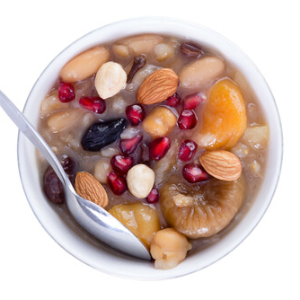Yesterday we looked at Albania’s favourite mains and sides. Today, as promised, we’ll explore the tiny country’s Breads, Sweets and Beverages. As with the mains, you’ll note some similarities with those of other Balkan countries. But again, many will be pure Albanian…
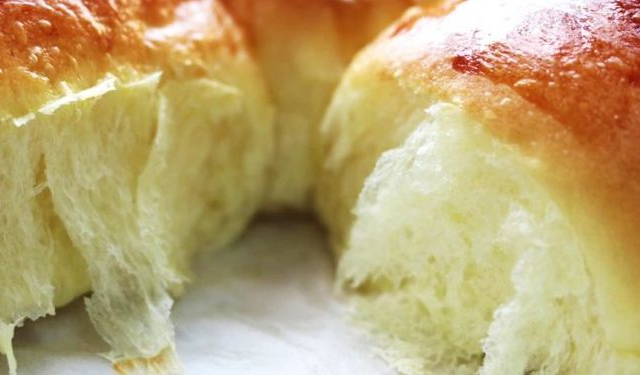 Bukë Shtëpie: The daily Bread of Albania, traditionally made in pull-apart individual loaves…
Bukë Shtëpie: The daily Bread of Albania, traditionally made in pull-apart individual loaves…
On the menu today
Breads
We’ll skip the breads shared freely between other Balkan cuisines and the Middle East – like Pita – and concentrate on typically Albanian loaves…
Bukë Shtëpie: The daily Bread of Albania. The dough calls for yeast, flour, butter, oil, sugar and salt. Just mix up the ingredients and knead. Divide into (large-ish) equal portions and roll into balls. Arrange the proto-rolls/loaves in a large round, shallow pan and let rise again for about half an hour. It’s okay if the rolls touch. Bake at 400 F for about 25 minutes. Serve with soft cheese or butter, alongside any main.
Flija: An oven-baked Flatbread. But a flatbread with a difference: Multiple layers of dough are used, separated by a filling of butter, oil and yogurt. The bread itself is a primitive concoction of four, salt and water, which bakes up like an eggless crèpe.
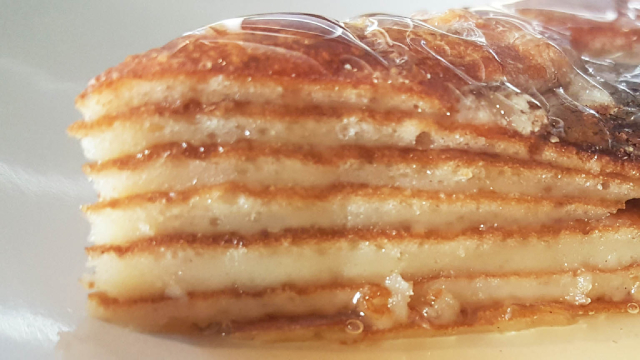
Keep stacking layers until you run out of filling. Your last layer must be bread. Flija is traditionally cooked over an open fire in a shallow round pan covered with a lid shaped like a flat cone, or concave, called a Sac. It’s essential peasant food.
Petulla: Fried Dough. Flour, milk, eggs, yeast, vanilla, oil, sugar and salt go into the dough. Albanian bakers recommend blooming the yeast first in warm water. Then add the rest of the ingredients except the flour and oil. Finally, add the oil, and then add the flour in stages until you have a wet dough. Cover with a damp towel and let rise for 2 hours. Set up a deep-frying station on your stove (or crank up your deep fryer) and use a scoop to measure out dough nuggets. Fry for about 2 minutes on each side. Drain. For a savoury version, serve with soft cheese. This is a popular snack food, sold at countless street stands and restaurants across Albania.
Kulaç: Traditional Soda Bread. A heavyish loaf (characteristic of Soda Bread), and a universal favourite in the Albanian countryside. It used to be made in every home, but now it’s available at every bakery, market and grocery.
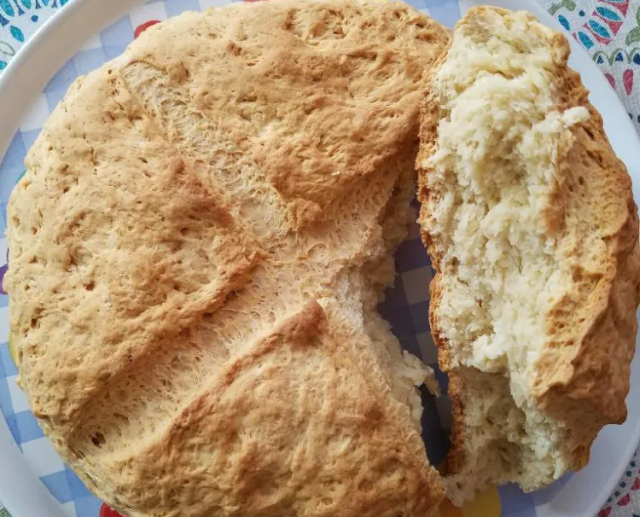
Like other Albanian breads, the dough is simple: Flour, yogurt, baking soda and salt. After mixing and kneading, the dough is formed into a round loaf about 2 in. / 5 cm thick. Bake on a well-greased or parchment paper-lined tray for about 40 minutes, on the bottom rack of the oven. Kulaç is traditionally cut into wedges, like a cake for serving.
Sweets
Again, many Albanian sweets are their versions of treats found across the Balkans and in the Middle East. We’ll concentrate on typically Albanian menu items. And it’s here where the Albanian breads and sweets cross over, starting with…
Petulla: Make the little dough nuggets just the same way as described above, under Breads, but dust with powdered sugar and serve with fruit jam.
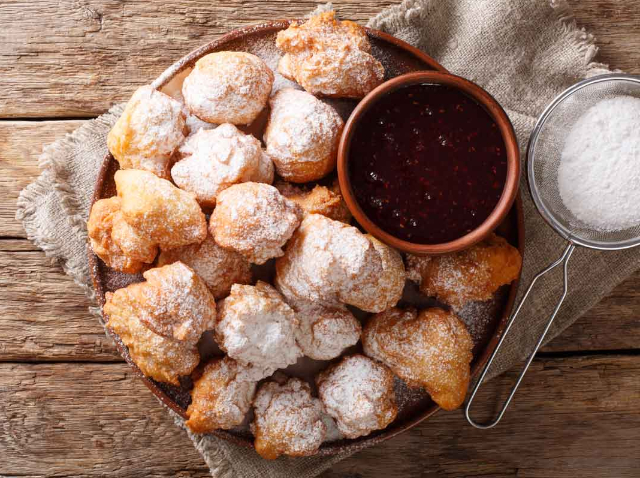
Flija: For a dessert version, top with sugar syrup.
Ashure: A traditional favourite eaten during Eid. Also called Noah’s Ark Pudding (see photo, top of page). Though it sounds like a savoury, when you read the ingredients list, it’s a delicious sweet. You’ll need chickpeas, white beans, bulgar wheat, raisins, dried apricots, orange peel and whole cloves. Soak the beans overnight. In the morning, immediately get the chickpeas and beans simmering – an hour to 1.5 hours; until soft. Drain the Bulgar. Simmer the Bulgar in lots of clean water until the mix thickens. Then drain and add the beans. Stir in the raisins, apricots, orange peel, and cloves. and simmer for another 15-20 minutes. Pour into individual serving bowls to cool. Garnish with goodies of your choice; traditionally chopped walnuts, chopped pistachios, currants, and cinnamon.
Kurabie: Albanian Biscuits. Or, if you like, Scones. These soda-raised gems are soft and sweet. And they stay that way for several days, unlike the Scones or Biscuits we’re used to in the West.
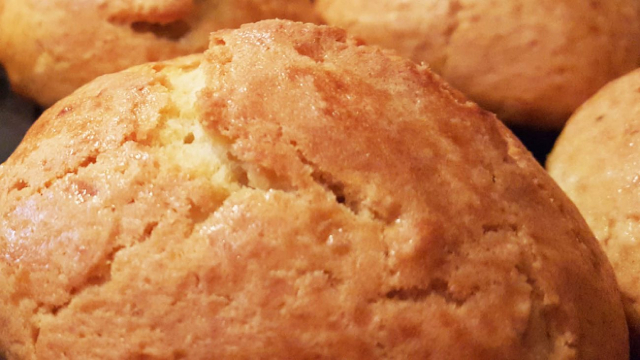
They usually come in either vanilla or lemon flavour. Sometimes shredded coconut is added. Hand-formed round biscuits are placed at least 2 in. / 5 cm apart on a greased or parchment-paperd baking sheet, brushed with an Egg Wash, and baked for about 20 minutes. Place on a rack to cool; they’re a little too delicate hot out of the oven to manipulate without breakage.
Pufka: Sort of a puff pastry, bathed in Sugar Syrup. The ingredients list sounds to a westerner like something is missing – flour. But the eggs, milk powder, baking soda and corn starch combine to make a light, delicious one- or two-bite treat. Form the dough into small balls using a teaspoon or a small scoop. Bake until golden brown. Immediately out of the oven, toss the Pufka into a pan of warm sugar syrup, flavoured with whole cloves. When the pastries have soaked up lots of syrup, place on parchment paper to cool.
Beverages
Gorani Sok: A naturally bubbly, non-alcoholic beverage made from just about any fruit the home-brewer has on hand: including bilberries, blackberries, blueberries, cherries, rose hips, juniper berries, wild pears, plums, damsons, raspberries, sour cherries, hawthorn, crab apples, cherry plums, and sloes.
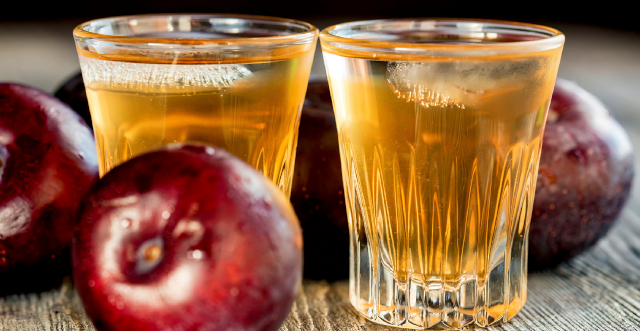
It’s fermented anaerobically, and only gets a touch of alcohol if sugar and lemon juice are added to improve the gassiness. Enjoyed as a refreshing drink, Sok is also believed to have healing powers, and it said to be especially beneficial to the liver.
Gorani Boza: Millet Beer. Fermented with no added sugar, Boza has a relatively low alcohol content and a decided acidic tinge which combine to make it a refreshing quaff. Similar to millet beers found in other Balkan countries, the Albanian version distinguishes itself by its lightness and acidity.
Wild Lily (Lilium martagon) Tea: Using the bulbs and leaves, gathered in midsummer, Albanians make medicinal ‘teas, infusion and decoctions’, said to be an aid to digestion and – again – particularly beneficial to the liver.
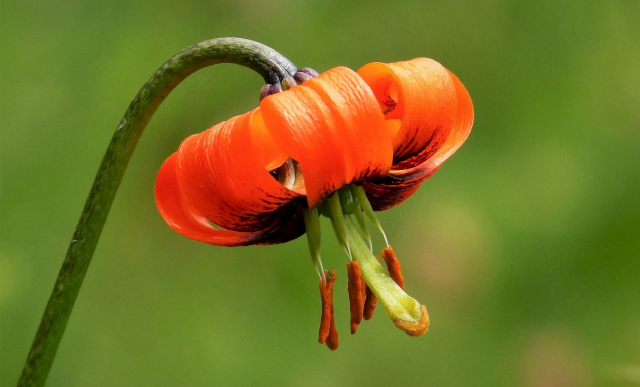
Why do Albanians have such a fixation on liver health? Perhaps because they drink so much hard liquor – not the least ‘hard’ of which is…
Rakija: The universal word, across the Balkans, for ‘Brandy’. In Albania they make a specific, signature varieties made with fruits: plums (šljivovica), Williams pear (viljamovka), quinces (dunjevača), apricots (kajsijevača), apples (jabukovača), and grapes (lozovača/komovica). Everybody drinks it, at all occasions and as an everyday tipple.
Cherry Plum Raki: A specific spirit made in the Shala Valley in Northern Albania, from the fruit of the wild cherry plum (Prunus cerasifera). It’s made by home-distillers, and is not available commercially.
Now that we’ve toured ancient and venerable Albania…
… We’re ready to move on to other cuisines of the world. But first, we’ll take a much-deserved break and get caught up on other food and nutrition news!
~ Maggie J.

